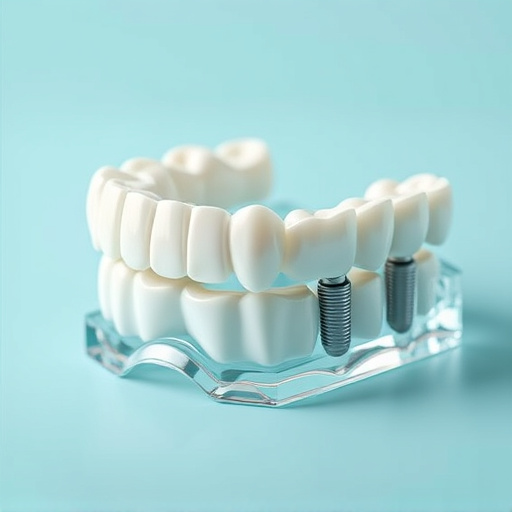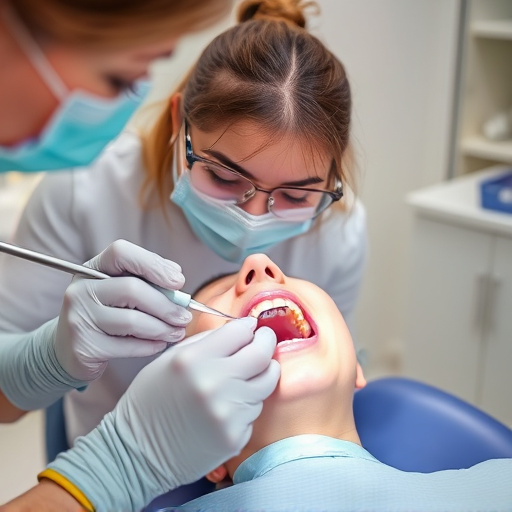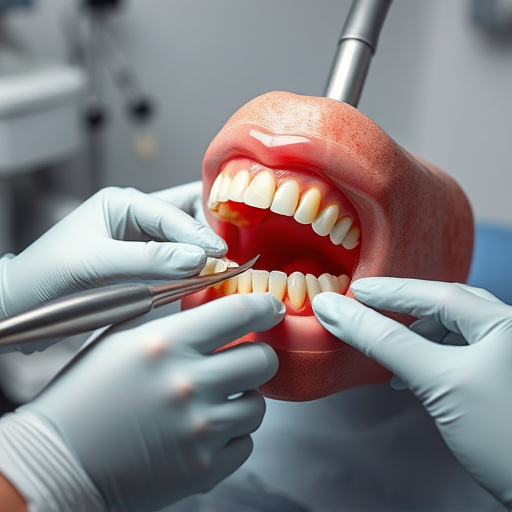Gingivitis, caused by bacterial buildup from poor oral hygiene, leads to gum inflammation and potential tissue damage if untreated. Periodontal therapy treatment offers non-surgical options including deep cleaning (scaling and root planing) and dental bonding to manage gingivitis, reduce gum inflammation, and preserve bone structures for dental implants. Regular care and emergency dental visits prevent severe gum disease complications.
Gingivitis, an early stage of gum disease, is a common yet concerning oral health issue. Understanding its causes and symptoms is the first step towards effective treatment. This article explores how Periodontal Therapy Treatment offers a comprehensive solution for managing gingivitis. From non-surgical approaches to the remarkable benefits of regular periodontal care, we delve into why this therapy is a game-changer in maintaining healthy gums. Discover how it can revolutionise your oral hygiene routine and prevent further complications.
- Understanding Gingivitis: Causes and Symptoms
- Periodontal Therapy Treatment: Non-Surgical Approaches
- Benefits of Periodontal Care for Gingivitis Management
Understanding Gingivitis: Causes and Symptoms
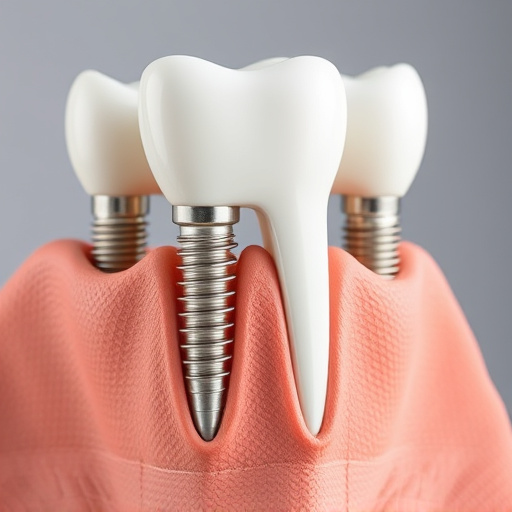
Gingivitis is a common periodontal disease that affects the gums, leading to inflammation and potential damage if left untreated. It is primarily caused by bacterial buildup along the gumline due to poor oral hygiene practices. Plaque, a sticky film of bacteria, can harden into tartar (calculus) over time, irritating the gums and triggering an inflammatory response. This condition manifests in various symptoms, including red, swollen, and tender gums, bleeding during brushing or flossing, and bad breath. In some cases, gingivitis may also lead to recession of the gums, exposing sensitive parts of the teeth.
While gingivitis is often reversible with proper oral care, it can progress to periodontitis if not treated early. Periodontal therapy treatment focuses on addressing the underlying causes and managing the disease. This may involve a combination of professional cleanings, deep scaling (removing tartar and plaque below the gumline), and educating patients on improving their brushing and flossing techniques. In some cases, procedures like wisdom tooth removal or placement of dental implants can also be part of a comprehensive periodontal therapy treatment plan to restore oral health and prevent further complications, such as damage to nearby teeth or bone loss caused by advanced gingivitis.
Periodontal Therapy Treatment: Non-Surgical Approaches
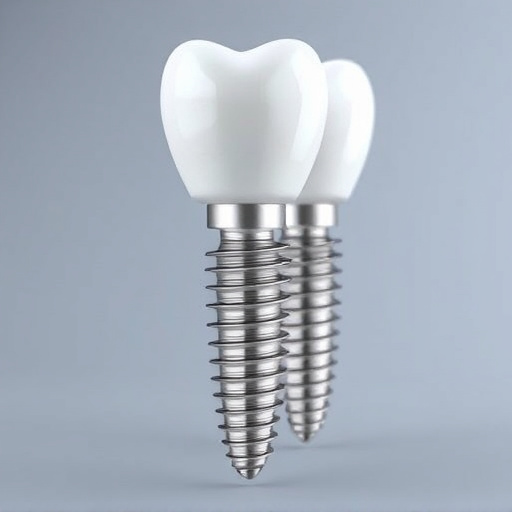
Periodontal therapy treatment offers a range of non-surgical approaches to address gingivitis and its underlying causes. One common method is deep teeth cleaning, also known as scaling and root planing. This procedure involves the removal of plaque and tartar buildup from above and below the gumline. Dentists use specialized instruments to thoroughly clean the teeth and roots, promoting gum health and reducing inflammation.
Another non-surgical technique is dental bonding, which can be employed not only for cosmetic dentistry but also to treat gingivitis-related issues. Bonding involves applying a tooth-colored resin material to the affected areas, smoothing it over the teeth, and hardening it with a special light. This process helps to cover and protect exposed roots, reducing further damage caused by gum recession and providing a more comfortable chewing experience.
Benefits of Periodontal Care for Gingivitis Management
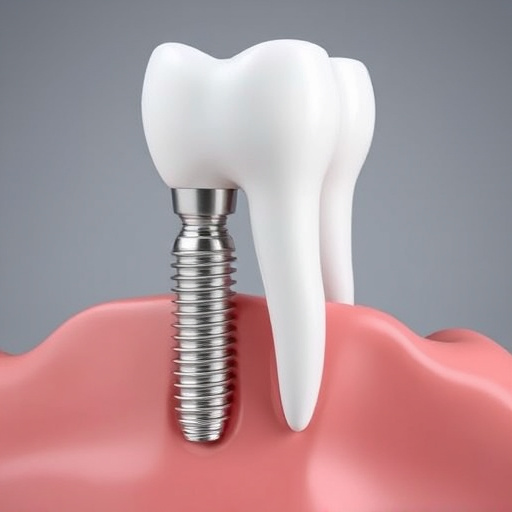
Periodontal therapy treatment offers a comprehensive approach to managing gingivitis, focusing on both the gums and teeth. One of its key benefits is deep cleaning beyond what routine oral exams can provide. Professional scaling and root planing remove plaque buildup and tartar from hard-to-reach areas, reducing inflammation and promoting healthy gum tissue.
Additionally, periodontal care enhances overall oral health, as gingivitis left untreated can progress to periodontitis, affecting not just the gums but also supporting bone structures crucial for dental implants. Regular visits for emergency dental care, coupled with proper periodontal therapy treatment, empower individuals to take charge of their oral health and prevent severe gum disease complications.
Periodontal therapy treatment has proven to be a highly effective approach for managing gingivitis. By addressing the underlying causes and symptoms, non-surgical techniques offer a comprehensive solution. Regular periodontal care not only improves oral health but also enhances overall well-being, demonstrating that treating gingivitis is a vital step towards a healthier, more vibrant smile.






